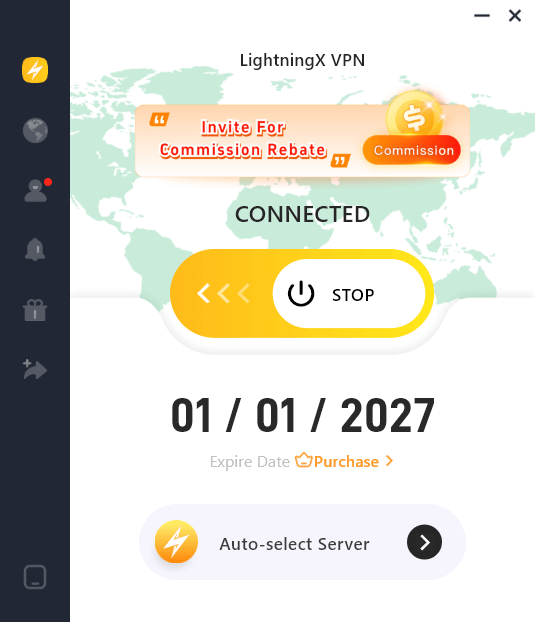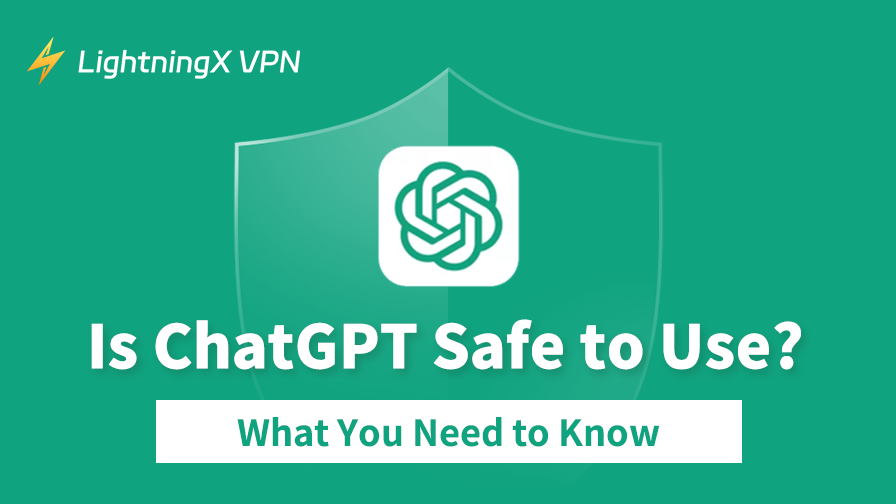Let’s talk about ChatGPT. Maybe you have used it to get help with writing or even have a casual chat. Isn’t it fascinating? However, some people are still unsure about using ChatGPT. They wonder, “Is ChatGPT safe?” “Can I trust it with my personal information?” So, let’s break this down and take a closer look at whether using ChatGPT is safe and what you need to know.
What Does ChatGPT Offer? How Can It Be Used?
ChatGPT has quickly become one of the most talked-about AI tools out there. But what exactly does it offer? Well, for starters, it’s like having an assistant that never sleeps. It is ready to answer questions, brainstorm ideas, or even just chat. ChatGPT always has something to offer, no matter what your request is.
People use it in all sorts of ways. Some rely on it for work, using it to draft emails. Some use it to summarize documents or even generate creative content. Others turn to it for learning, asking it to explain complex topics in simple terms.
Of course, it’s not perfect. Sometimes, it gets things wrong or sounds a little too confident about something that isn’t quite right yet. But as long as you take its responses with a grain of salt and double-check important information, it can be an incredibly useful tool. For students, a professional, or just someone who loves discovering new things, ChatGPT can make life a little easier.
How Do They Deal with Sensitive Data?
ChatGPT doesn’t store or remember personal conversations once the chat ends. It processes requests in real time but doesn’t keep logs of what you’ve said.
However, that doesn’t mean you should be careless. AI models rely on secure systems to process input, but they aren’t designed to manage confidential information. If you’re dealing with sensitive business documents or personal data, it’s best to keep those out of the chat.
Is ChatGPT Safe? What Are the Potential Risks?
ChatGPT is designed to be secure in terms of how it processes and responds to input. It doesn’t store conversations or keep any personal data once the chat ends. So, in a way, it’s pretty low-risk in terms of data security.
That said, there are still some potential risks.
Privacy and Data Security
One of the biggest concerns people have when using AI tools like ChatGPT is privacy. After all, you’re typing things into a platform, no one knows where the data leads. It’s important to remember that ChatGPT does not store personal conversations in a way that would identify you or track your behavior. But it will collect some personal information like your name, date of birth, or even your IP address.
Using a VPN like LightningX VPN can add another layer of security with strong protocols like WireGuard, Vless, and Shadowsocks.

It masks your IP address and encrypts your internet connection even when using AI tools like ChatGPT. It has 2000+ servers so that you can have access to many geo-restricted contents, for example, if you’re in a country where ChatGPT is blocked, using this VPN for ChatGPT can help you get around that.
OpenAI has made it clear that it doesn’t sell the data or use it to create personal profiles of users. However, it’s always a good idea not to share sensitive personal information like passwords, credit card numbers, or anything that could compromise your privacy.
While OpenAI has measures in place to ensure the platform’s security, the general rule of thumb is to treat any online interaction with caution. Don’t forget that what you say can still be seen by those maintaining the platform, even if they don’t directly use it for marketing or personal gain.
Misinformation and Accuracy
ChatGPT is just an AI model trained on a bunch of data, so it doesn’t exactly stay up to date in real time. Whether its information is fresh or not really depends on when it was last trained. And training something like this takes a ton of time and effort from developers, so it’s not like it gets updated every day.
Plus, it doesn’t “know” things in the way humans do – it can only generate responses based on patterns it has learned. That’s why you shouldn’t rely on ChatGPT too much. Sure, it’s great for getting ideas, but if you’re working on something important, like a research paper or anything serious, it’s always a good idea to double-check the facts.
Ethical Considerations
Here’s something more philosophical. Is it ethical to use ChatGPT? Some argue that relying on AI for certain tasks might replace jobs, or that it might enable people to cut corners when it comes to creating content or doing research.
And while it’s true that ChatGPT can generate text quickly, the idea is that it’s supposed to assist rather than replace human effort. It’s like a tool, not a replacement for real creativity or hard work.
On the other hand, there are concerns about AI-generating content that could be harmful, offensive, or misleading. This is where developers have to step in and put safeguards in place. OpenAI has worked to limit harmful outputs, and it encourages users to report problematic content. But ultimately, it’s up to us, the users, to be responsible for how we use these technologies.
Related: Microsoft Copilot vs ChatGPT: Which One Is for You?
Is ChatGPT Safe for Kids?
Well, this is quite uncertain. The platform is great for learning, solving homework problems, or just having a fun conversation. ChatGPT can generate content that is not appropriate for younger audiences.
OpenAI has added filters to try to limit inappropriate content, it’s not perfect, though. Parents should guide their kids on how to use AI in a proper way. And telling them that they don’t share personal information and understand the limitations of the AI.
Protecting Yourself While Using ChatGPT
Using ChatGPT is generally safe, but it’s important to be mindful of how you interact with it. Here are a few simple rules to follow:
- Avoid sharing sensitive data: Don’t type in your personal information, passwords, or anything you wouldn’t want to be seen.
- Cross-check information: While ChatGPT can provide great answers, it’s still a good idea to verify the information, especially for important topics.
- Be mindful of biases: ChatGPT can inherit biases from its training data. Keep this in mind when using it to form opinions or make decisions.
- Use it as a tool: ChatGPT is here to assist, not replace your thinking. Don’t rely on it too much for things that require deep critical thinking or professional expertise.
The Bottom Line
So, is ChatGPT safe to use? Yes, as long as you use it in the right way. There is no doubt that ChatGPT is a powerful, helpful tool. However, there are still precautions that need to be taken. Be mindful of your privacy and don’t forget to verify the information you get.















